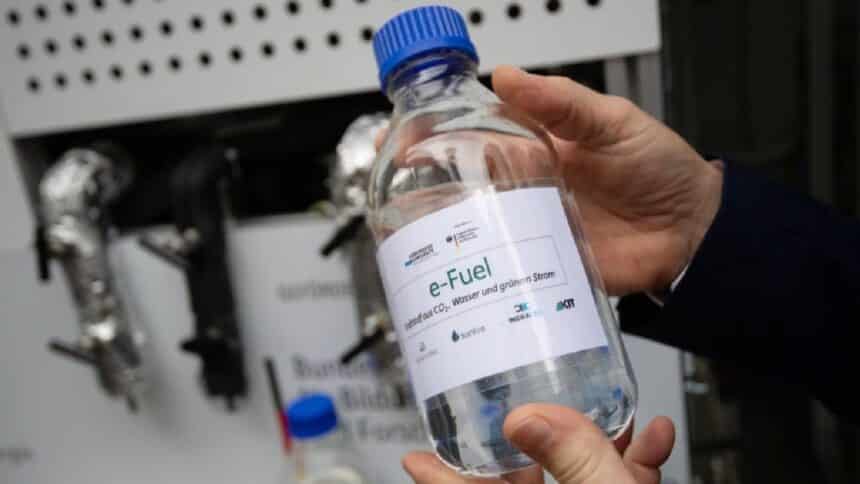AUTONEWS
 German government bets on synthetic fuel to keep internal combustion engines alive
German government bets on synthetic fuel to keep internal combustion engines alive
The European Commission wants to prohibit the sale of new coaches with an internal combustion engine, including hybrids, in the European Union from 2035. Pero Alemania is opposed to this ban, as declared this week by the German Transport Minister, Volker Wissing.
The European Commission proposes the last month of July for the ban on the sale of cars that emit CO₂ from 2035 onwards, it is decided to decide on the ban on gasoline engines. "We want combustion engines to follow an option, but run exclusively on synthetic fuels," the German minister told the newspapers.
European Commission Owner is recognized by the United States, especially by those who have a large automotive industry. You can not all agree. The first countries to position themselves against Chequia and France.
“We want combustion engines to follow an option, but run exclusively on synthetic fuels,” declared German Transport Minister Volker Wissing.
The country can challenge you to continue selling hybrid cars until 2040. From 2040 onwards, you must develop and point to the fan electric cars, Stellantis and Renault without screens in the ban on gasoline and diesel cars.
For Luca De Meo, CEO of the Renault group, hybrids, even though they encourage hybrids, while Carlos Tavares, first executive of the Stellantis group, asks how to protect freedom from mobility from quien not being able to allow an electric coach, for it is, “ the electric coach imposed by ley in the solution”.
The goal of the German government is to maintain internal combustion engines from 2035 onwards. For this purpose, its aim is to develop synthetic fuels obtained from renewable energies.
The Volkswagen group, despite being now one of the most ardent supporters of the electric car, is also very involved in the development of synthetic fuels, through its Porsche and Audi brands. Porsche has already started a pilot in Chile to produce synthetic fuel from renewable energies.
Several German component and spare parts manufacturers are also working in this direction, especially through the international eFuel alliance, which also brings together oil companies and even Mazda.
The automobile plays an important role in the German economy. The automobile sector is one of the pillars of the German industry, generating a turnover of around 423,000 million euros and employing around 820,000 people. The work car in 11.8% of the German industry, is decir, 3.3 percentage points above the European media (8.5% in the EU).
Y its importance is listed as being exclusively national, since with factories of German companies in the European media, it is a crucial industry for many EU countries, such as Hungary, the Czech Republic, Slovakia and Spain.
Así, el paso al carro electric lagoon in danger one of each of the employees of the automotive industry in Germany, es decir, unos 400,000 directors. However, those who will be most affected by these structural changes will be small and medium-sized companies and the smallest tasters. None would be the big industrial groups. The auxiliary industry, present in many other European countries, would also be affected.
To minimize the impact, one of the possible solutions is the use of synthetic fuels. The Transport Minister confirmed that his department also invests in synthetic fuels, the so-called e-fuels. Electric drive cannot completely replace the internal combustion engine, after the minister.
In commercial vehicles, it is not feasible, he considers, and also for air transport. Therefore, in the future, there is more than one type of energy to give movement. “It is extremely important that we remain open to technology”, concluded the German minister.
Mundoquatrorodas

Nenhum comentário:
Postar um comentário